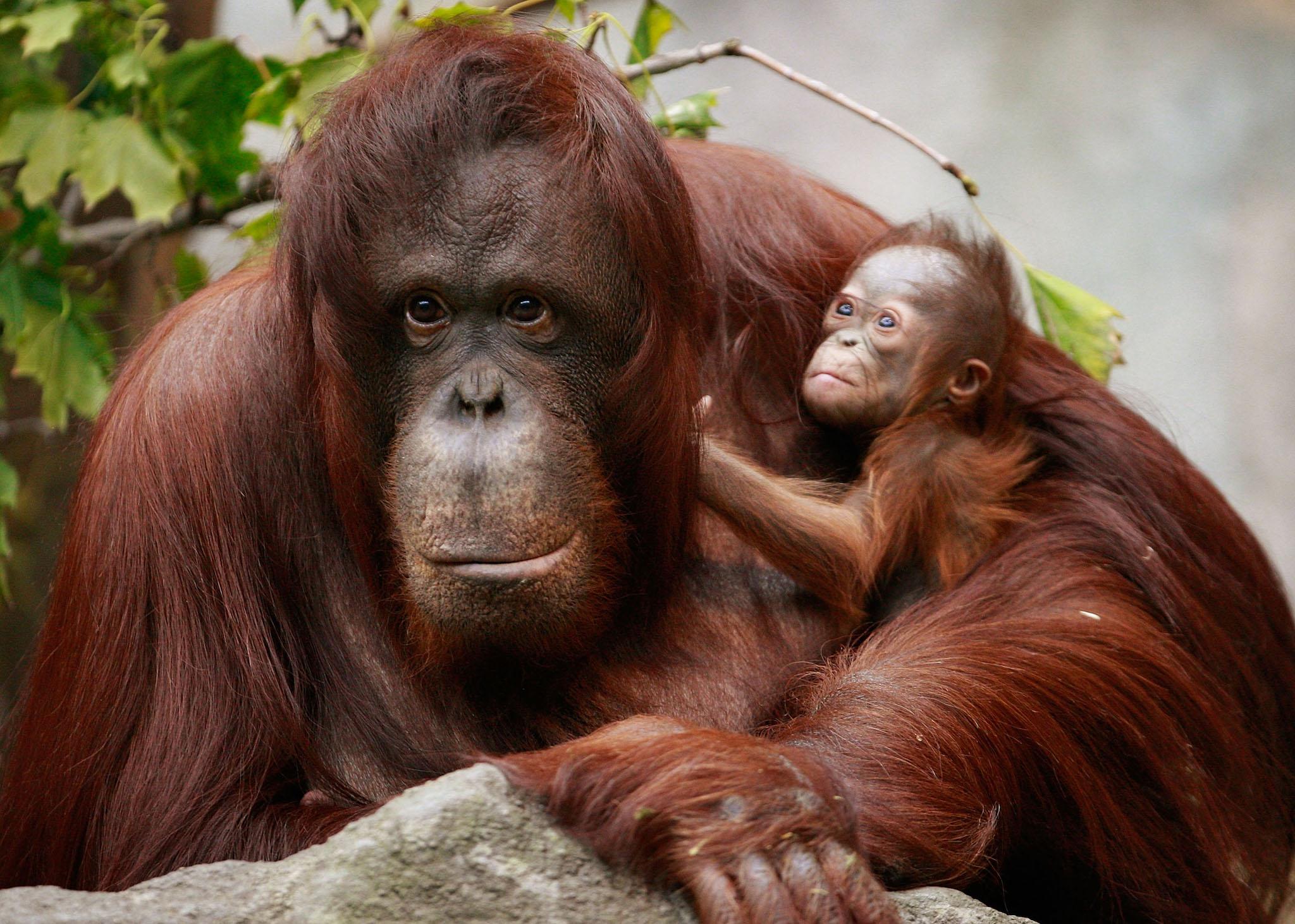Endangered orangutan brutally slaughtered, hacked to pieces and then eaten by men in Indonesia
Local media have shared pictures of the horrifying scene, which took place on an Indonesian palm oil plantation

An endangered and rare Bornean orangutan has been slaughtered, hack to bits and then eaten in Indonesia.
The gruesome scene happened after the animal wandered onto a palm oil plantation, according to police and activists.
Local police have named three suspects in the brutal killing. A further seven are being questioned as witnesses.
The gruesome scene became clear after police found the animal's bones and dried meat in a cupboard on a camp where workers on the plantation were living, according to local reports.
The true horror of what had happened was made public after local news reports posted pictures of the animal's destroyed body.
The three men appear to have killed, chopped, cooked and then eaten the orangutan on an Indonesian palm oil plantation where they were working, police said. Such palm oil plantations are the main threat to the critically endangered Borneo orangutan – getting hold of the oil means chopping down forests where the animals live, leading them to die out or come into contact with humans and then get killed.
The slaughter of the orangutan is against laws that have been passed to protect those animals.
But local activists criticised the palm oil companies for passing rules that mean workers are forced to ensure the plants aren't damaged – which tends to mean that they will kill any orangutans they come across, for fear they might damage the crops. Environmental group the Centre for Orangutan Protection also said that licenses should never have been given out to have a palm oil plantation in an area where the orangutans live.
The population of Bornean orangutans has already fallen by more than half over the last 60 years, according to the WWF. The species is classed as critically endangered, meaning that there is a very high risk that it could soon become extinct.
Join our commenting forum
Join thought-provoking conversations, follow other Independent readers and see their replies
Comments
Bookmark popover
Removed from bookmarks